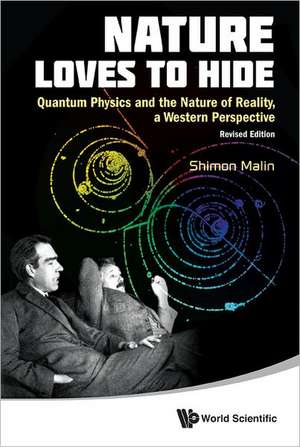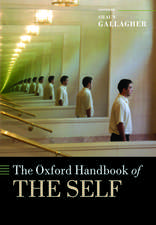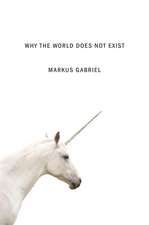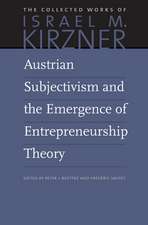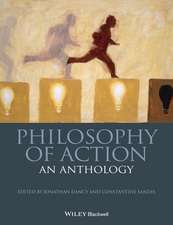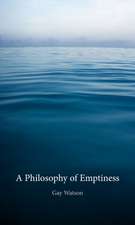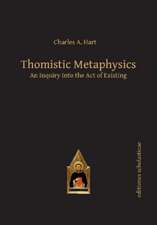Nature Loves to Hide
Autor Shimon Malinen Limba Engleză Paperback – 21 mar 2012
| Toate formatele și edițiile | Preț | Express |
|---|---|---|
| Paperback (1) | 278.25 lei 6-8 săpt. | |
| WORLD SCIENTIFIC – 21 mar 2012 | 278.25 lei 6-8 săpt. | |
| Hardback (2) | 448.28 lei 6-8 săpt. | |
| WORLD SCIENTIFIC – 21 mar 2012 | 448.28 lei 6-8 săpt. | |
| Oxford University Press – 2 aug 2001 | 469.72 lei 31-38 zile |
Preț: 278.25 lei
Nou
Puncte Express: 417
Preț estimativ în valută:
53.24€ • 55.59$ • 44.07£
53.24€ • 55.59$ • 44.07£
Carte tipărită la comandă
Livrare economică 04-18 aprilie
Preluare comenzi: 021 569.72.76
Specificații
ISBN-13: 9789814324571
ISBN-10: 9814324574
Pagini: 308
Dimensiuni: 150 x 226 x 18 mm
Greutate: 0.45 kg
Ediția:Revised
Editura: WORLD SCIENTIFIC
ISBN-10: 9814324574
Pagini: 308
Dimensiuni: 150 x 226 x 18 mm
Greutate: 0.45 kg
Ediția:Revised
Editura: WORLD SCIENTIFIC
Descriere
Descriere de la o altă ediție sau format:
The strangeness of modern physics has sparked several popular books - such as The Tao of Physics--that explore its affinity with Eastern mysticism. But the founders of quantum mechanics were educated in the classical traditions of Western civilization and Western philosophy. In Nature Loves to Hide, physicist Shimon Malin takes readers on a fascinating tour of quantum theory - one that turns to Western philosophical thought to clarify this strange yet inescapable explanation of reality. Malin translates quantum mechanics into plain English, explaining its origins and workings against the backdrop of the famous debate between Niels Bohr and the skeptical Albert Einstein. Then he moves on to build a philosophical framework that can account for the quantum nature of reality. He shows, for instance, how Platonic and Neoplatonic thought resonates with quantum theory. He draws out the linkage between the concepts of Neoplatonism and the more recent process philosophy of Alfred North Whitehead. The universe, Whitehead wrote, is an organic whole, composed not of lifeless objects, but "elementary experiences." Beginning with Whitehead's insight, Malin shows how this concept of "throbs of experience" expresses quantum reality, with its subatomic uncertainties, its constituents that are waves and also particles, its emphasis on acts of measurement. Once any educated person could explain the universe as a vast Newtonian web of cause and effect, but since quantum theory, reality again appears to be richer and more mysterious than we had thought. Writing with broad humanistic insight and deep knowledge of science, and using delightful conversations with fictional astronauts Peter and Julie to explain more difficult concepts, Shimon Malin offers a profound new understanding of the nature of reality - one that shows a deep continuity with aspects of our Western philosophical tradition going back 2500 years, and that feels more deeply satisfying, and truer, than the clockwork universe of Newton.
The strangeness of modern physics has sparked several popular books - such as The Tao of Physics--that explore its affinity with Eastern mysticism. But the founders of quantum mechanics were educated in the classical traditions of Western civilization and Western philosophy. In Nature Loves to Hide, physicist Shimon Malin takes readers on a fascinating tour of quantum theory - one that turns to Western philosophical thought to clarify this strange yet inescapable explanation of reality. Malin translates quantum mechanics into plain English, explaining its origins and workings against the backdrop of the famous debate between Niels Bohr and the skeptical Albert Einstein. Then he moves on to build a philosophical framework that can account for the quantum nature of reality. He shows, for instance, how Platonic and Neoplatonic thought resonates with quantum theory. He draws out the linkage between the concepts of Neoplatonism and the more recent process philosophy of Alfred North Whitehead. The universe, Whitehead wrote, is an organic whole, composed not of lifeless objects, but "elementary experiences." Beginning with Whitehead's insight, Malin shows how this concept of "throbs of experience" expresses quantum reality, with its subatomic uncertainties, its constituents that are waves and also particles, its emphasis on acts of measurement. Once any educated person could explain the universe as a vast Newtonian web of cause and effect, but since quantum theory, reality again appears to be richer and more mysterious than we had thought. Writing with broad humanistic insight and deep knowledge of science, and using delightful conversations with fictional astronauts Peter and Julie to explain more difficult concepts, Shimon Malin offers a profound new understanding of the nature of reality - one that shows a deep continuity with aspects of our Western philosophical tradition going back 2500 years, and that feels more deeply satisfying, and truer, than the clockwork universe of Newton.
Recenzii
If you are interested in philosophy, or modern physics, or both, this may be the book for you ... likely to reward the reader well for the time and effort spent.
Notă biografică
Shimon Malin is a Professor of Physics at Colgate University. A leading authority on quantum mechanics, General Relativity and cosmology, and philosophy, he is the author or co-author of three books and some fifty scientific papers. He lives in Brattleboro, Vermont.
